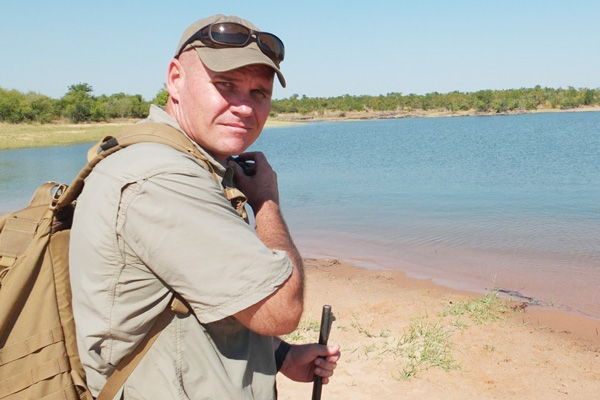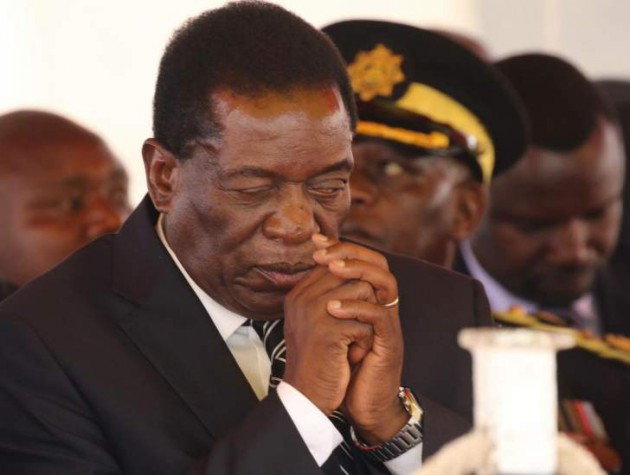
RORY Young believes his anti-poaching training operations in the Kariba area were about to bear fruit when he was suddenly summoned by the dreaded Central Intelligence Organisation (CIO).
BY OUR STAFF
A few days after the encounter with the secret service, he had left Zimbabwe for good and the country’s loss had become Malawi’s gain.

“On my way to do further training of Zimbabwe Republic Police and scouts in the Nyaminyami area I received a message from a third party to report to Office of the President in Kariba,” Young wrote on Facebook after his dramatic departure from Zimbabwe last year.
“After a full and thorough interrogation, I was told that I was not allowed to train anyone and if I did, I would be arrested.
“When I protested that I had been given a two-year residence permit in order to train anti-poaching personnel, that I was training police with the authority of police headquarters and with the permission of the appropriate authority for the area, I was told to shut up, that they were above the police, and that even if I had done nothing wrong, they would find a reason to arrest me and throw away the key unless I stayed away from the area and did no training in Zimbabwe.”
Young, who works for Chengeta Wildlife, had to stop all anti-poaching trainings and assistance in Zimbabwe, which was the base for their efforts all over Africa.
- Chamisa under fire over US$120K donation
- Mavhunga puts DeMbare into Chibuku quarterfinals
- Pension funds bet on Cabora Bassa oilfields
- Councils defy govt fire tender directive
Keep Reading
Chengeta Wildlife is a non-profit organisation that was registered in the United States last year to support the efforts of Zimbabwe wildlife conservationists, but its activities in the country were cut short after Young was forced to flee last year.
“Unfortunately, the CIO didn’t stop there and we began to hear via third parties that CIO were making more threats against me, obviously to ensure I didn’t come back to the area,” he said. “They wanted me and anyone like me far away from Matusadona and Nyaminyami [national parks].”
Now watching cases of elephant poaching skyrocket at the Hwange National Park and areas around Kariba from a safe distance at his new Malawi base, Young is the least surprised of the many watchers of the scandal unfolding in Zimbabwe’s wildlife sector.
He shares the views by many conservationists that rogue members of the country’s security forces have a hand in the resurgent cases of cyanide elephant poaching that has seen more than 60 elephants mercilessly slaughtered for their ivory in Hwange alone.
Young said trade in legal ivory was a very complex industry but Zimbabwe’s security apparatus had the capacity to be always ahead of the poachers.
“Zimbabwe has such an established extensive intelligence gathering security network in place to support the current leadership that any poaching and trafficking on an industrial scale could not conceivably be conducted without these government agents’ knowledge,” he said.
“Not only is it common sense that if turned towards protecting wildlife that they could easily shut down this illegal and immoral industry, but it could not be continuing on such a scale without the complicity of at least individual senior security officials.
“The business of killing elephants and exporting the contraband ivory is necessarily a complex one requiring the support of corrupt officials and politicians.
“There is an established correlation between levels of corruption and wildlife trafficking.”
He said even if the poachers were impoverished Zimbabweans, the contraband could not leave the country without the involvement of influential people.
“While the actual killing may be done by some of the many suffering from poverty due to the stunning mismanagement of Zimbabwe’s economy, the illegal export of such quantities cannot proceed without the assistance and involvement of corrupt officials,” he said.
Young’s sentiments follow the arrest of Sunday Mail journalists Mabasa Sasa, Brian Chitemba and Tinashe Farawo over a story alleging that an unnamed senior police officer was being investigated for his alleged involvement in the poaching activities.
The journalists are out on bail and are expected back in court this week on charges of publishing falsehoods. Young said the arrests raised suspicion, especially as police sought to force the journalists to reveal their sources. “Clearly, the ZRP are not reacting as a professional and unemotional arm of the law,” he said.
“Touched a nerve? Have they detained and questioned or arrested any officers to show their earnestness and honesty in investigating the allegations.
“Surely, the crime, if true, is far more serious than knowing the reporter’s sources?”
Centre for Natural Resources Governance director Farai Maguwu said it was difficult to exonerate state security agents from the poaching scourge that has blighted the country’s tourism industry.
“In my view, we cannot exonerate police and senior government officials,” he said.
“The way police reacted or overreacted [in arresting journalists] clearly shows that this was not a mere allegation.
“Trade in ivory is different from smuggling of gold because it involves huge consignments and it will need the facilitation of authorities to help it cross the border.
“Also, on the use of cyanide, it is difficult for villagers to get it and it is my strong view that can only be done by senior government officials and police.”
There have been numerous reports of police officers being arrested for poaching, including the recent arrest of two police officers who were caught two weeks ago allegedly trying to sell a pangolin to a businessman.
The two, both in their 20s, were arrested and charged with “possessing a specially-protected animal without a permit.”
Environment minister Oppah Muchinguri last week said the government has deployed the army and CIO operatives to join the police and game rangers in fighting poachers.
She described the spike in poaching cases as a cancer and stopped short of blaming Zimbabwe National Parks and Wildlife Management Authority rangers for the scourge.
She said the army was being deployed to monitor the poaching crisis in Hwange, Mana Pools, Gonarezhou, Matusadona and Chizarira national parks.
The soldiers would be using helicopters and drones for their aerial patrols, Muchinguri said.









